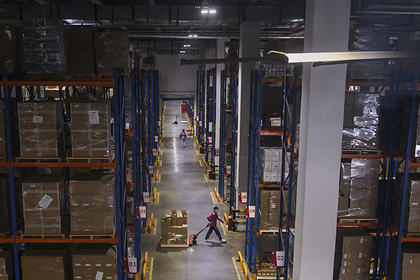Financial Times: China sees a threat to the global economy from EU trade barriers 
European Union (EU) barriers that could harm the global supply chain, reports the Financial Times.
Chinese Ambassador to the European Union Zhang Ming said that the European Commission's trade strategy, which presupposes the protection of EU interests and values, including through new trade instruments, could create barriers for foreign enterprises. “The actions taken by the EU will also have global implications, such moves could create additional stress on the global supply chain and industry,” said a Chinese official. According to him, a number of measures, which the EU policy envisages, may have undesirable side effects. However, they will not be able to provide stability for the global transportation of goods and production after the pandemic, as well as the recovery of the world economy as a whole.
Zhang Ming urged Europe to adhere to the rules of the World Trade Organization (WTO). He also noted that such measures will negatively affect investment in Europe and will raise prices. “Such moves deviate from the original objectives of trade and economic policy, and also constitute a distortion of market principles,” added the Chinese ambassador.
Among other things, the Chinese ambassador also referred to the words of business representatives, who argued that the new policy would create special tools for pressure on other countries and their enterprises. “These instruments are discriminatory and also violate the market principle of fairness and fairness,” said Zhang Ming.
The European Commission has previously outlined its trade strategy for the coming years. She promised to defend the interests and values of the European Union tougher, including with the help of new trade instruments. The strategy included protection from unfair trade practices from other countries, which meant government subsidies and dumping (the sale of goods and services at artificially low prices). In particular, it was proposed to strengthen resistance to violations of competition rules and restore the dispute settlement system.
European countries have already faced price increases. Thus, the cost of goods has broken a record since the 2008 global financial crisis. According to Eurostat, in October 2021 inflation in the euro area was 4.1 percent in annual terms. The jump in inflation doubled the European Central Bank (ECB) target of two percent. Experts noted that the reason for this inflation was the rise in the cost of fuel, as well as higher demand, outstripping supply. At the same time, representatives of the ECB expected that such conditions would be temporary. They noted that the bank will keep the measures to stimulate the economy, which were launched during the coronavirus pandemic, until the end of March 2022.